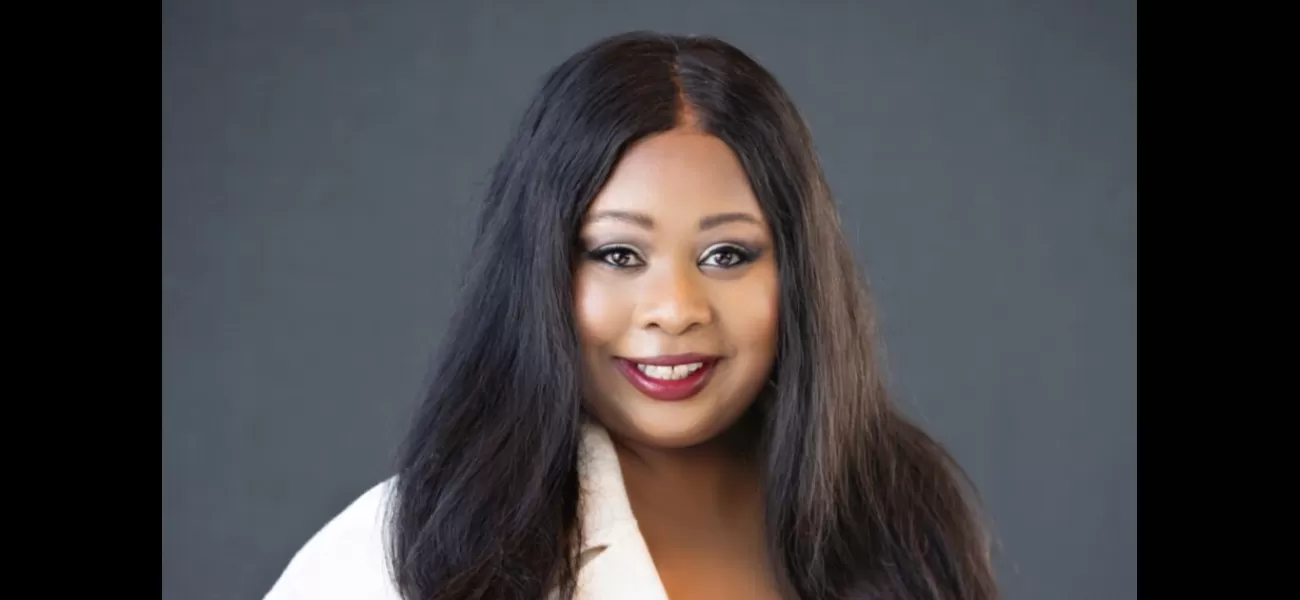The roots of American popular culture lie in Black history.
Pop culture connects different time periods and has a strong impact on promoting and showcasing Black achievements in society.
March 5th 2024.

As an avid observer of American pop culture, it's impossible to ignore the profound impact of Black history on its development. In fact, one could argue that without the contributions of the Black community, pop culture as we know it would not exist. From art and music to fashion and language, the influence of Black voices and culture can be seen in every aspect of the zeitgeist. It is our responsibility to honor and preserve this legacy, ensuring that the contributions of the Black community are recognized and celebrated.
As the CEO of the Museum of Pop Culture and a Black woman, I have the privilege of witnessing firsthand the impact of the Black community on the world of pop culture. It's a role that I take very seriously, knowing that I stand on the shoulders of the Black leaders who came before me. My mother was my first mentor, instilling in me a love for arts and culture from a young age. She was a trailblazer in her own right, breaking barriers as one of the first Black ballerinas to dance professionally in Philadelphia. I attribute much of my success to her guidance and inspiration.
It's the legacies of individuals like my mother that have shaped the pop culture landscape we know today. At MoPOP, we make it a priority to honor and celebrate the trailblazers of Black culture, showcasing their immense talent and vibrant contributions. Take, for example, Bo Diddley, whose bold and innovative music influenced not only his contemporaries but also future generations of artists like Elvis Presley and Jimi Hendrix. And of course, we cannot overlook the impact of icons like Beyoncé, whose career has spanned over three decades and solidified her as one of the most influential figures in contemporary pop culture. Her music, activism, and entrepreneurship have made her a force to be reckoned with.
But it's not just about recognizing the influence of the Black community on pop culture. It's also essential to dispel the misconception that classical or fine art is somehow superior to or separate from pop culture. In fact, one could argue that pop culture has had an even more profound impact on American history than some of its fine art counterparts. This is especially evident when we consider the counterculture movements and civil rights struggles of the 1960s, which paved the way for a broader acceptance of diversity in cultural expression. Music played a significant role in these movements, with songs like Richie Havens' "Freedom" and Nina Simone's "Mississippi Goddam" becoming anthems for social change.
It's crucial that we preserve Black pop culture to fully understand its impact on our society. By conserving the diverse cultural expressions of different communities, we can protect their heritage and identity. This also provides a platform for marginalized communities to share their stories, fostering inclusivity and greater acceptance.
One of our most successful exhibitions at MoPOP featured the work of Ruth E. Carter, a costume designer who has worked on films like Black Panther, Malcolm X, Selma, and Do the Right Thing. Her attention to detail and vibrant designs have been integral in translating stories of race, politics, and culture to the big screen. For almost 40 years, Carter has been helping shape the Afrofuturism movement, which gives Black artists, writers, and creators a platform to reimagine history and envision futures where Black people are the heroes, innovators, and leaders. By centering Black experiences, Afrofuturism challenges dominant cultural narratives that have often marginalized or erased Black contributions to society.
And of course, we can't discuss the impact of the Black community on pop culture without acknowledging the powerhouse that is hip-hop. At MoPOP, we have been at the forefront of recognizing hip-hop as a cultural art form. In fact, we began collecting hip-hop artifacts even before the museum officially opened in 2000, and we were one of the first museums to host an exhibit on hip-hop. Today, we have one of the largest collections of hip-hop artifacts in our permanent collection, showcasing the genre's profound influence on music as a whole.
Hip-hop has undeniably reshaped the landscape of American music, transcending its origins as a marginalized urban art form to become a dominant force in global culture. Its influence extends far beyond the music industry, permeating into various aspects of society and inspiring countless artists across genres. From its roots in the Bronx in the 1970s to its current status as a billion-dollar industry, hip-hop has continually pushed boundaries, challenged norms, and amplified the voices of marginalized communities. Its impact can be seen in the mainstream music industry, shaping the sound of pop, R&B, rock, and even country. In many ways, hip-hop has revolutionized how we create, consume, and understand music in the modern era.
As we celebrate Black History Month, it's essential to not only pay tribute to the challenges and accomplishments of the past but also apply these lessons to the future. Pop culture serves as a bridge between timelines, allowing us to recognize and appreciate the impact of Black contributions throughout history. As the CEO of MoPOP, it is my mission and life's work to ensure that we continue to acknowledge the importance of preserving, teaching, and celebrating Black culture for generations to come.
As the CEO of the Museum of Pop Culture and a Black woman, I have the privilege of witnessing firsthand the impact of the Black community on the world of pop culture. It's a role that I take very seriously, knowing that I stand on the shoulders of the Black leaders who came before me. My mother was my first mentor, instilling in me a love for arts and culture from a young age. She was a trailblazer in her own right, breaking barriers as one of the first Black ballerinas to dance professionally in Philadelphia. I attribute much of my success to her guidance and inspiration.
It's the legacies of individuals like my mother that have shaped the pop culture landscape we know today. At MoPOP, we make it a priority to honor and celebrate the trailblazers of Black culture, showcasing their immense talent and vibrant contributions. Take, for example, Bo Diddley, whose bold and innovative music influenced not only his contemporaries but also future generations of artists like Elvis Presley and Jimi Hendrix. And of course, we cannot overlook the impact of icons like Beyoncé, whose career has spanned over three decades and solidified her as one of the most influential figures in contemporary pop culture. Her music, activism, and entrepreneurship have made her a force to be reckoned with.
But it's not just about recognizing the influence of the Black community on pop culture. It's also essential to dispel the misconception that classical or fine art is somehow superior to or separate from pop culture. In fact, one could argue that pop culture has had an even more profound impact on American history than some of its fine art counterparts. This is especially evident when we consider the counterculture movements and civil rights struggles of the 1960s, which paved the way for a broader acceptance of diversity in cultural expression. Music played a significant role in these movements, with songs like Richie Havens' "Freedom" and Nina Simone's "Mississippi Goddam" becoming anthems for social change.
It's crucial that we preserve Black pop culture to fully understand its impact on our society. By conserving the diverse cultural expressions of different communities, we can protect their heritage and identity. This also provides a platform for marginalized communities to share their stories, fostering inclusivity and greater acceptance.
One of our most successful exhibitions at MoPOP featured the work of Ruth E. Carter, a costume designer who has worked on films like Black Panther, Malcolm X, Selma, and Do the Right Thing. Her attention to detail and vibrant designs have been integral in translating stories of race, politics, and culture to the big screen. For almost 40 years, Carter has been helping shape the Afrofuturism movement, which gives Black artists, writers, and creators a platform to reimagine history and envision futures where Black people are the heroes, innovators, and leaders. By centering Black experiences, Afrofuturism challenges dominant cultural narratives that have often marginalized or erased Black contributions to society.
And of course, we can't discuss the impact of the Black community on pop culture without acknowledging the powerhouse that is hip-hop. At MoPOP, we have been at the forefront of recognizing hip-hop as a cultural art form. In fact, we began collecting hip-hop artifacts even before the museum officially opened in 2000, and we were one of the first museums to host an exhibit on hip-hop. Today, we have one of the largest collections of hip-hop artifacts in our permanent collection, showcasing the genre's profound influence on music as a whole.
Hip-hop has undeniably reshaped the landscape of American music, transcending its origins as a marginalized urban art form to become a dominant force in global culture. Its influence extends far beyond the music industry, permeating into various aspects of society and inspiring countless artists across genres. From its roots in the Bronx in the 1970s to its current status as a billion-dollar industry, hip-hop has continually pushed boundaries, challenged norms, and amplified the voices of marginalized communities. Its impact can be seen in the mainstream music industry, shaping the sound of pop, R&B, rock, and even country. In many ways, hip-hop has revolutionized how we create, consume, and understand music in the modern era.
As we celebrate Black History Month, it's essential to not only pay tribute to the challenges and accomplishments of the past but also apply these lessons to the future. Pop culture serves as a bridge between timelines, allowing us to recognize and appreciate the impact of Black contributions throughout history. As the CEO of MoPOP, it is my mission and life's work to ensure that we continue to acknowledge the importance of preserving, teaching, and celebrating Black culture for generations to come.
[This article has been trending online recently and has been generated with AI. Your feed is customized.]
[Generative AI is experimental.]
0
0
Submit Comment





